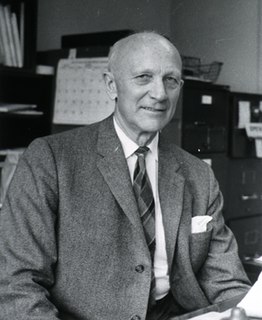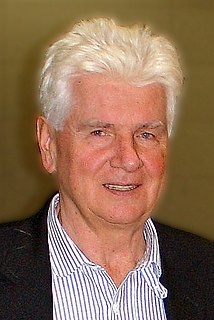A Quote by Rodolfo Llinas
The Neurosciences do not exist exclusively to understand man's nature. They also serve a social function, such as in the treatment of the cerebral diseases or when helping us to have a more pleasant and constructive life. It is a thing that one could explore well.
Related Quotes
I admire Joyce Maynard a lot, specifically her memoir "At Home in the World." Her writing is beautiful and fascinating and seemed to give me validation to the idea that I could write validly in earnest about my life with (my) very feminine point of view, and also that I could unapologetically explore the bad traits of my character (which I find to be more interesting to explore than the good traits), as well as explore other concepts that interest me like private vs public personas, age gap relationships, etc.
In spite of all these disquieting triumphs in the field of natural science, it's astonishing how little man has learned about himself, and how much there is to learn. How little we know about this brain which made social evolution possible, and of the mind. How little we know of the nature and spirit of man and God. We stand now before this inner frontier of ignorance. If we could pass it, we might well discover the meaning of life and understand man's destiny.
Constitutional rights are useful up to a point, but they do not serve to guarantee much more than what could be called the bourgeois conception of freedom. According to the bourgeois conception, a "free" man is essentially an element of a social machine and has only a certain set of prescribed and delimited freedoms; freedoms that are designed to serve the needs of the social machine more than those of the individual.
When we do not know the truth of a thing, it is good that there should exist a common error which determines the mind of man, as, for example, the moon, to which is attributed the change of seasons, the progress of diseases, etc. For the chief malady of man is a restless curiosity about things which he cannot understand; and it is not so bad for him to be in error as to be curious to no purpose.
I see a world in the future in which we understand that all life is related to us and we treat that life with great humility and respect. I see us as well as social creatures, and when I began to look back and say, ‘what is the fundamental bottom line for us as social creatures?’I couldn’t believe it because it seemed so hippy dippy, but it was Love. Love is the force that makes us fully human.
Throughout the history of commercial life nobody has ever quite liked the commission man. His function is too vague, his presence always seems one too many, his profit looks too easy, and even when you admit that he has a necessary function, you feel that this function is, as it were, a personification of something that in an ethical society would not need to exist. If people could deal with one another honestly, they would not need agents.
A well-known magazine asks a man how they should refer to him, as Psychologist X, as Author X? He suggests man of letters, for that is what he is, in the eighteenth-century meaning. But they can't buy that because the word doesn't exist in Time-style; he cannot be that, and presumably the old function of letters cannot exist.
Doubt is not a pleasant condition, but certainty is an absurd one. What is most repellent in the System of Nature - after the recipe for making eels from flour - is the audacity with which it decides that there is no God, without even having tried the impossibility. If God did not exist, he would have to be invented." But all nature cries aloud that he does exist: that there is a supreme intelligence, an immense power, an admirable order, and everything teaches us our own dependence on it.
Create or perish is the eternal mandate of nature. Be constructive or become frustrated is an equal demand. You cannot escape the conclusion that whatever this thing is which is seeking expression through everything, it can find satisfactory outlet only through constructive and life-giving creativeness.
If you want to serve the universe, the obvious place to begin is right where you are. That's where I began. I looked at every situation I came into and wondered, 'What can I do to be of service in this situation?' Sometimes there was nothing I could do, but often there was - a helping hand, a word of cheer, a pleasant smile. Then, after I had given a lot, a most wonderful spiritual receiving began - giving me more to give.


































